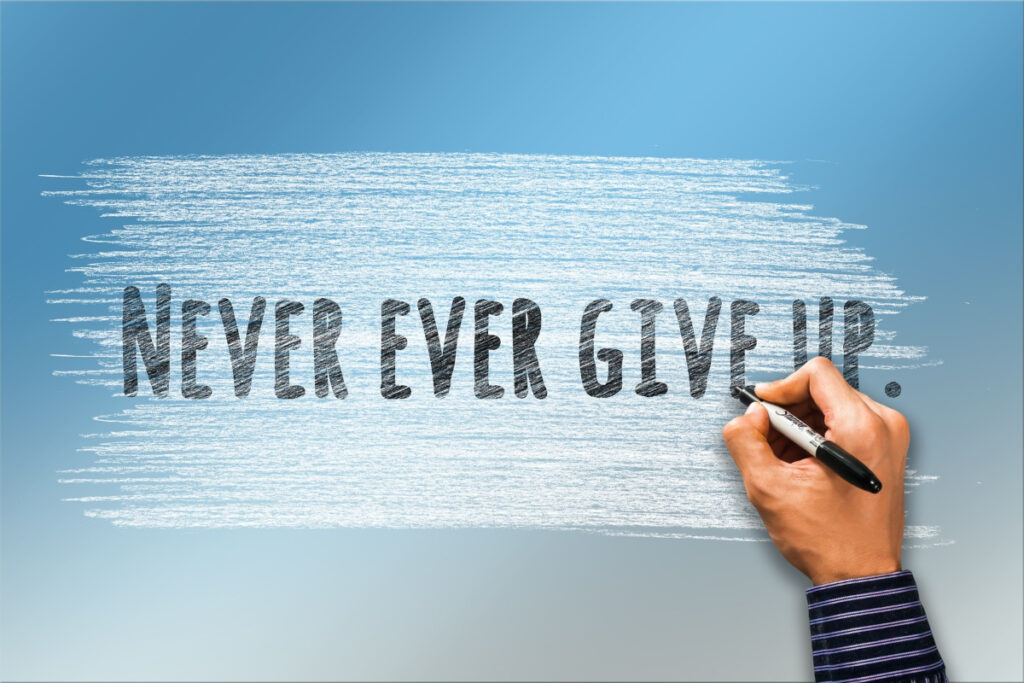Sugar, salt, and pepper are important ingredients from a dietary standpoint. Similarly, when we are looking at life’s success, what are the three most important ingredients?
- What are the ingredients needed for you to reach the pinnacle of success?
- Can you convert your dreams to reality?
- How to attain wealth, health, and relational happiness?
The three ingredients to consider are Courage, Action, and Completion.
COURAGE:

Let us look at Courage. Wikipedia states “Courage (also called bravery or valor) is the choice and willingness to confront agony, pain, danger, uncertainty, or intimidation.”
Winston Churchill said, “Courage is rightly esteemed the first of human qualities because it is the quality that guarantees all others.” In a similar manner, Maya Angelou stated, “Courage is the most important of all the virtues because without courage, you cannot practice any other virtue consistently.”
It is important to keep in mind that courage does not wipe out or eliminate fear.
Therefore, those individuals or heroes who exhibit tremendous courage also experience fear like all of us. We should never give up, when faced with life’s challenges. Instead, we should continue to work hard. It is important to use courage to push through these challenges, on our way to our success-destination.

Courage is the primary ingredient to attain any significant success in one’s life.
One has to possess, develop, and augment one’s own courage while pursuing success.
Mahatma Gandhi’s Courage:
Let us look at an individual who exhibited tremendous courage in the face of injustice, inequality, and oppression. Yes, let us look at Mohandas Karamchand Gandhi or Mahatma Gandhi. Mahatma meaning, “great soul.”
Henry David Thoreau’s Influence on Mahatma Gandhi
A single individual, Mahatma Gandhi stood up with courage to face the then most powerful empire in the world, the British empire. He did so to attain India’s independence from the British rule. He used non-violent approach in doing so.
It is interesting to note, that Gandhi was influenced by Henry David Thoreau, a 19th-century American writer. Thoreau published his idea of civil disobedience in an essay in 1849. Thoreau was motivated by his opposition to slavery and the Mexican-American War during the years of 1846-1848.
Gandhi had been imprisoned 4 times in South Africa and 6 times in India. While in jail, Gandhi read Thoreau’s essay, “Civil Disobedience.” Gandhi appears to have embraced this concept of “civil disobedience.” He made it his way of non-violently refusing to cooperate with the British authorities in India. Instead of words civid disobedience, he opted for the Sanskrit word Satyagraha (devotion to truth).
It is of interest to note, that Martin Luther King, Jr. appears to have also been influenced by Thoreau, and also by Mahatma Gandhi.
Salt March
One of the significant events in Gandhi’s life was the Salt March. In 1882, British Salt Act was enacted that prohibited Indians from collecting or selling salt in India. This meant that Indian citizens had to buy salt from the British merchants. These merchants had monopoly over the manufacture and sale of salt. Additionally, these transactions had a significant salt tax.
Gandhi was 61 years old when he undertook his historic Salt March from March 12th, to April 5th, 1930. Gandhi walked 10 miles daily for 24 days covering 240 miles (241 miles) from his Sabarmati Ashram near Ahmedabad to Dandi, located on the coast of the Arabian Sea.
Beginning with 80 people, the march ended with a crowd of tens of thousands of people. Upon reaching the destination, Gandhi picked up a small lump of natural salt out of the mud. This action established the civil disobedience to the British Salt Act. This clearly is an act of courage in the face of adversity, that could have even threatened his existence. Nearly 80,000 people were arrested, including Gandhi. Shortly thereafter, about 2,500 marchers advanced on to the government salt works located at Dharsana depot.
India’s Independence
Webb Miller, an American journalist wrote, “at a word of command, scores of native police rushed upon the advancing marchers and rained blows on their heads…Not one of the marchers even raised an arm to fend off the blows. They went down like ten-pins.” This made international headlines, and it was also read in the U.S. Congress. The Salt March, and other courageous acts of Gandhi and his followers, culminated in Indian Independence from the British rule on Friday August 15, 1947.
Courage in Our Daily Lives
Gandhi my friends, is clearly an outlier, outside the bell curve. Gandhi is among the greatest heroes of all time, that generations read, historians applaud and all of us admire in awe!
We on the other hand, must look at courage from our own perspective in our daily lives. Courage my friends, is a must in our lives. Regardless of where we stand in the courage spectrum, we can get better with continued efforts and mental training. We can build, strengthen, and increase our courage incrementally, over time.
Role of Procrastination
Often in our day to day life, when we are challenged, we often embrace procrastination. This partly is due to not possessing the required amount of courage to move forwards during those moments of adversity, challenge, and uphill journey.
Life’s Challenges
These challenges may be in the areas of our relationship, finance, or health and wellness, or beyond. It is in those challenging moments, that we need the courage, to deal with the issues at hand, effectively and efficiently, in a timely manner.
We need to develop enough individual courage to help us get to our goals, dreams, and aspirations. Only we can do it in our own life’s journey. This also means that we have to face our fears!
That raises the question, what is fear? Let us briefly analyze fear, before we move on to the next important ingredient to life’s success.
Fear is the first cousin to Courage
In my opinion, Fear is the first cousin to Courage. They usually hang out together. They go everywhere together like inseparable-twins. Most importantly, they live inside the mind of every single human being.

Role of Uncertainty
Uncertainty contributes to fear, and in life uncertainty is a given. Therefore, fear will always be there. You cannot eliminate fear even though you may want to. Fear is closely associated with the survival mode and our reaction is influenced by our adrenaline response, which often translates into our ‘fight’ or ‘flight’ response. The adrenaline has a direct effect on our body including rapid heart rate, palpitations, elevated blood pressure, anxiety, and sweating.
Life is uncertain, unknown, and unclear. However, life brings clarity when we look through the rear-view mirror of the past, but when we look forward through the windshield, all we see is a fog of uncertainty. We are uncertain whether we will live or die the next moment. Whether we will make money or lose money. Whether our spouse/better-half will continue loving us or begin to dislike us.

Negative Thoughts Starts a Downward Spiral
When such thoughts begin to take root in our mind’s garden, the atmosphere that surrounds us soon becomes tainted with fear, uneasiness, and discomfort. Life is no longer smiles, sunshine, and rainbows. Instead, life begins to look like a hurricane ready to hit anytime. Soon, fear becomes the word of the day. Now we can see how such a cycle of events can take shape within our mind and then effect our mood, our health, and our actions or inactions. Fear can dominate when we indulge in life’s uncertainties that lies ahead.

Courage-Fear-Interplay
Thus, fear and courage are inter-linked, inter-connected, and inter-active. Let us look at the interactions between these two major human emotions.
Courage pushes you forward from where you stand and since you are moving forward, I like to give it a positive (+) number. On the other hand, fear pulls you backwards from where you are, and hence I like to give it a negative (-) number.
Net-Effective-Number or “NEN”
Now, I’ve come up with “NEN” or Net-Effective-Number that relates to the courage-fear-interplay. If your courage is a +8 and your fear is a -4, then the NEN= +4, meaning you will move forward courageously in the given situation. However, if your courage is +4, and fear is -8, then the NEN= -4, meaning you will move backwards, or freeze in inactivity.
Hence, in my opinion, it is not the courage or the fear individually that matters, instead, it is the NEN that matters in any given situation. The NEN is the sole force that will move you forwards courageously or freeze you in your tracks or make you retreat with fear.
Role of Comfort Zone
Courage also means moving you out of your Comfort Zone and placing you in your Growth Zone. In order to experience growth, we have to step out of our comfort zone, and step into our uncomfortable zone, and this requires action. That brings us to the second most important ingredient to life’s success, namely, ACTION.
ACTION:

Pablo Picasso stated, “Action is the foundational key to all success.” Albert Einstein said, “Nothing happens until something moves,” and John Maxwell declared, “Everything worthwhile is uphill.” Therefore, if you want anything worthwhile, if you want things to happen, if you want success, you must act, and act you must!
What Converts Dreams to Reality?
Action is the fuel that drives dreams to reality. Yet, many of us embrace delayed action, slow action, or inaction. I say, “Action is everything, and everything you desire requires action.”

Your Inner Voice is often the Action Stopper!
In reality however, action may be one of the most difficult steps that you may have to take. This is because your inner voice tells you not to take action. The inner voice tells you that you have enough time to do the task. It adds that you work so hard, and that you need a break, and that you should not miss your favorite TV show. Your inner voice wants to always encapsulate you within the boundaries of your comfort zone.
Your inner voice continues to add more of these convincing suggestions, that you soon become a victim of this self-manufactured reality, within the web of your mental creations. Soon you walk away from your responsibilities of the day, and you put it off for the next day. But before you know it, the deadline becomes tomorrow, and now you get into a frenzied attempt at completing the task, against a backdrop of shrinking time. Hence, you moved from inaction, to crisis-induced activity.
Inaction to Action requires Motivation
Clearly, action can be brought about by desperation or by inspiration. It is better to act based on inspiration, good planning, and internal motivation, rather than stress, external pressure, and desperation.

President Franklin D. Roosevelt’s Actions Help Win His Presidency
When we look at some historic events, we can appreciate the significance of timely action. The unfortunate event of the 1929’s stock market crash caused President Herbert Hoover his presidency. It led to the emergence of President Franklin D. Roosevelt, who presented his promising “new deal” that was meant to provide new economic relief by escalating the federal government’s activities in various sectors of business. FDR promised the “new deal” and gained his way to his presidency defeating Herbert Hoover at the polls.
President John F. Kennedy’s (JFK) Quick Action Prevents a Possible Nuclear War
Another event of great global significance is the October Crisis of 1962 (October 16-28) or the Cuban Missile Crisis. This was based on the American detection of Soviet ballistic missiles in Cuba. President John F. Kennedy’s prompt action defused a possible full-blown nuclear war between the United States and the Soviet Union.
This crisis followed the 1961 failed Bay of Pigs invasion. Upon Fidel Castro’s request, Soviet Union’s Nikita Khrushchev had placed nuclear missiles in Cuba, that was about 90 miles from Florida, too close for comfort! Under the leadership of President JFK, Soviet Union dismantled their offensive weapons in Cuba following several days of tense negotiations. The world was ever grateful for this peaceful resolution.

We Need to Take Actions in Our Daily Lives
Let us move from historic actions to our daily lives. We all need to take action in our own lives at times of peace and during challenging times. However, most of the time, we do not want to take action. We want to be in our comfort zone. This is often due to the influence of our inner voice.
Inner Voice
The inner voice is set by default to be negative. But in order to make your dreams a reality, you have to step out of the comfort zone. You must embrace action and hard work. My mentor, Gene speaks of mind-set, skill-set, and action-set. He emphasizes, the importance to act.
Life is not easy as Steve Harvey said. He worked his way from rags to riches, from non-tv man to a tv-celebrity, from a dreaming-man to a reality-man by taking action in his own life. We all need to take action and override our inner negative voice and move forward.
Overcoming Negativity
We need to override the inner voice with our own script of positivity, determination, and purpose. This can prevent the weeds of negativity from growing in our mind’s garden.
John Maxwell states that the time to take action is when the idea is hot, and the emotion is strong. Action should be immediate! The drive for action usually will diminish over time if you remain in the inactive zone. Hence, you need to discipline your emotions, tame your reactions, motivate your motivations and take immediate action.
COMPLETION:

The final ingredient to lasting success is Completion.
What you start you must finish. Most of us may be eager to start a new project but often be slow to complete it. Any project that is not completed, no matter how good the work-in-progress is, it is practically speaking, not useful, nonprofitable, and often a losing proposition.
Finish line
If possible, you need to look at the finish line and work backwards. If Steve Jobs only dreamed of the smart phone and did not act, he would have taken that dream to his grave. Instead, he converted his dream to reality. This he did while fighting pancreatic cancer, and today the world has changed forever with the smart phone technology.
It is more important to complete the project than to always work towards a 100% finished project. Aiming for a perfect quality and not finishing the work on or before the deadline is not beneficial. You want to always stay away from the situation of analysis paralysis. In order to finish the project one may even consider dropping the quality from 100% to even 80%, if it means finishing on time. Finishing on time, trumps work-in-progress every time.
Completing Incomplete Segments
When you are trying to finish the incomplete segment, it is often a good idea to break this remaining incomplete segment of work into smaller segments. Smaller segments usually mean that it is more easily manageable.
When working on this segment, only focus on the part that you are working on and defocus your mind on all the remaining segments of work yet to be completed. Once you complete that segment move on to the next segment.
As you repeat this process of segmental completion, you soon will be at the finish line!
When you complete the project, you need to give yourself a reward. It can be watching a movie, listening to music, or just relaxing. Such a reward system can be the motivating force that drives you to your next project and carry you across that finish line.
Task-Reward System
When you rinse, repeat, and follow this task-reward pattern in your various projects, it will soon become second nature. This new habit formation, will help you to automatically focus on the finish line, and not taking your eyes off the ball at any time. This is the ideal mindset to efficiently completing projects and beat your competition.
Concluding Comments:
In conclusion, the 3-vital ingredients to your success are Courage, Action, and Completion. When you put these 3 ingredients in a jar and label-it “Consistency” there you have the complete recipe to life’s success. Use them, practice them, be consistent and persistent, and you will have success follow you! Your life will never be the same again!
I trust in you, and it is your success that I want to hear about!

Now, let us all rise and move towards our dreams.
Let us all rise and move towards our destination.
Let us all rise and make our dreams a reality! and the universe echoes, “yes, you can!”

References and Further Reading:
- https://en.wikipedia.org/wiki/Courage
- https://www.psychologytoday.com/us/blog/the-mindful-self-express/201208/the-six-attributes-courage
- https://www.skillsyouneed.com/ps/courage.html
- https://www.habitsforwellbeing.com/what-is-courage/
- http://www.loc.gov/teachers/classroommaterials/presentationsandactivities/presentations/timeline/depwwii/newdeal/
- https://www.fdrlibrary.org/great-depression-new-deal
- https://www.history.com/topics/cold-war/cuban-missile-crisis
Latest posts by DrTJ (see all)
- Emotional Intelligence: The Secret to Building Strong Relationships and Achieving Success - April 17, 2023
- Procrastination – Definition, Perspective, and Overcoming It - February 15, 2021
- Breaking Point, Boiling Point, and Beyond - February 5, 2021

Very logical approach towards achieving your dreams. Thanks for sharing your wise step by step approach towards success.
Yes, dreams, goals, and desires are essential fuel that can take us to our success destination in this journey of life.
I’m really impressed along with your writing talents as neatly as with the layout to your weblog. Is that this a paid theme or did you customize it yourself? Either way stay up the excellent quality writing, it is rare to peer a nice blog like this one these days.
Dr. TJ- Your words of wisdom speak to me personally when it comes to dealing with Obstacles. Thanks for your insightful, inspiring and empowering treatment of this universal life challenge. As you imply, Obstacles make us stronger, if we confront and overcome them.
Please continue to share your thoughts.
Mitch Gilbert
Intentional or not, Dr TJ’s analysis of anger is most timely and applicable to our current president’s reaction to his re-election loss. He is most certainly in the “Red Zone”. This has potentially grave consequences for our country. Also, the United States is collectively in the “Red Zone”, triggered by the COVID pandemic and racial tension. Let’s hope and pray that the anger won’t lead to physical violence. We need to transition quickly through the Yellow and Green Zones away from anger.
Thanks Dr TJ for focusing our attention on important concerns.